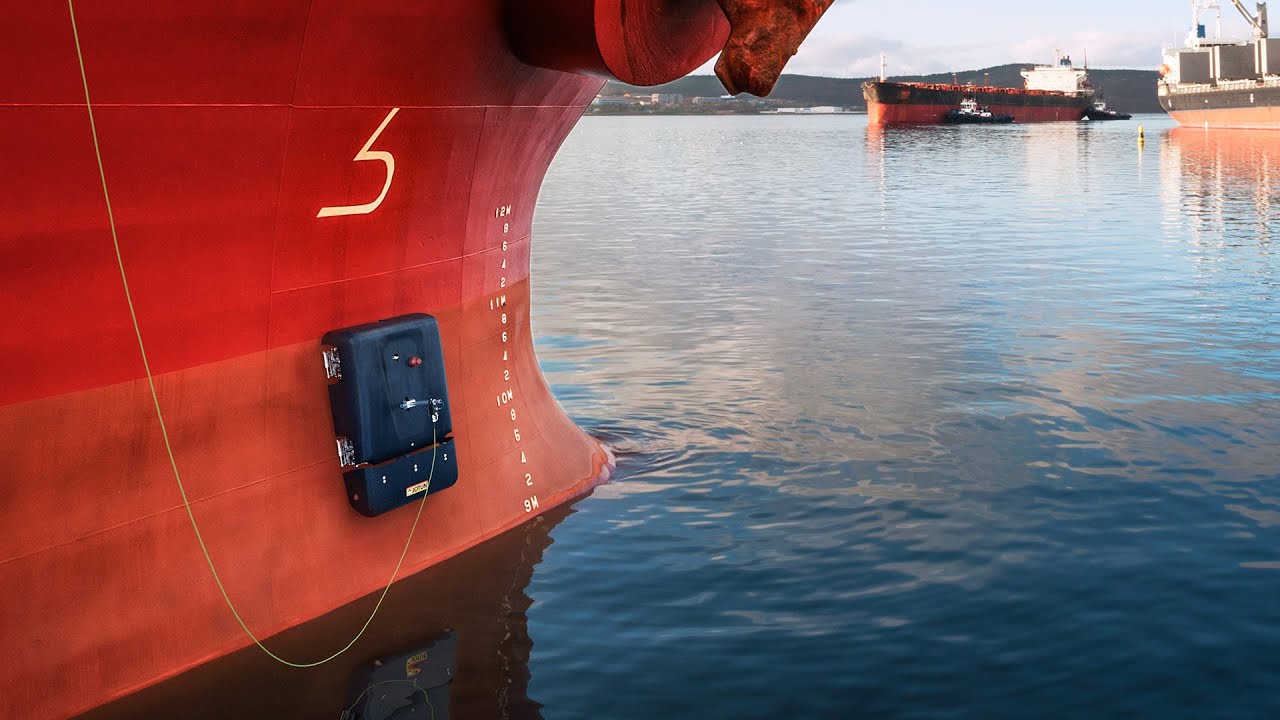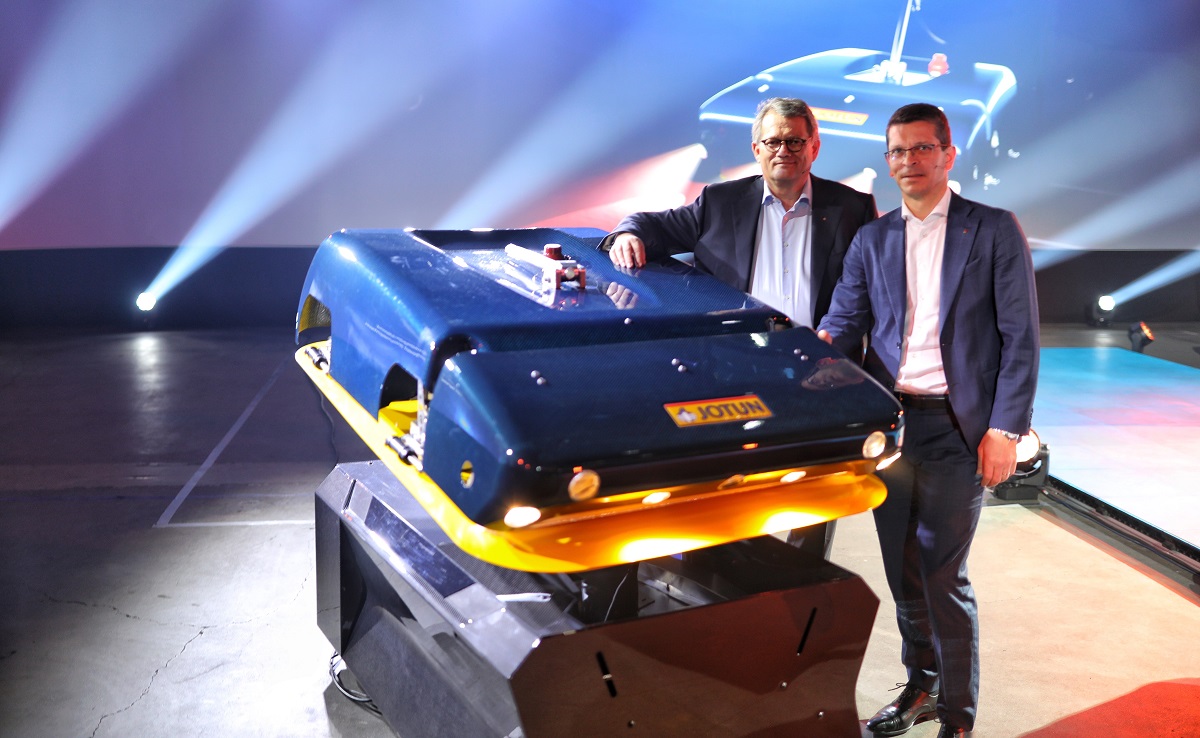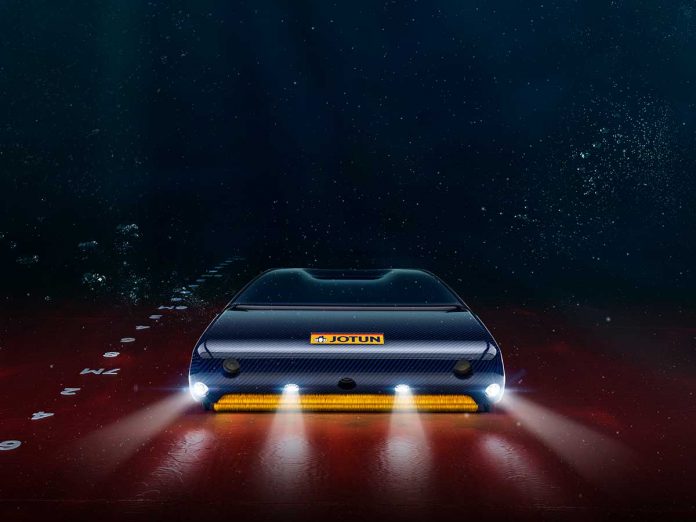Biofouling increases the drag of ships, so more energy is needed to power them, increasing fuel costs and multiplying their carbon emissions. According to the International Maritime Organization (IMO), maritime transport is responsible for nearly 3% of global greenhouse gas emissions.
The buildup of marine life can also lead to non-indigenous, invasive species being introduced to new environments. This could cause irreversible damage as these species become dominant in their new habitat and disrupt the biodiversity — an issue the IMO calls “one of the greatest threats to the world’s freshwater, coastal and marine ecosystems.”
To combat biofouling, technologies such as special coatings on ships and cleaning led by teams of divers are commonplace. But Norwegian company Jotun has a different approach.
Jotun has developed the HullSkater, a 200-kilogram (440-pound) magnetic crawling robot that removes the early stages of fouling. It’s remotely controlled by operators in Norway, who use a 4G connection and the robot’s four high-definition cameras to inspect the surface, before using its brush to remove initial signs of build-up.

By cleaning biofouling at an early stage, “we remove it before it becomes a problem,” explains Geir Axel Oftedahl, Jotun’s business development director.
Depending on the size of the ship, Oftedahl says inspecting and cleaning with the HullSkater takes around four hours and happens between eight and 16 times a year. The robot is kept onboard the ship and can be deployed whenever the vessel is stationary and has a data connection, he adds.
Jotun has also developed a special coating that is painted onto the ship to work with the HullSkater’s brush, says Oftedahl. This increases the effectiveness of the technology and reduces the risk of eroding too much of the ship’s surface during cleaning, which could leak chemicals into the sea, he says. Jotun says it is the first company to combine a robot, management, and a coating — to ensure the hull is always clean.

The IMO estimates that biofouling management could result in a reduction of around 80 to 90 million metric tons of carbon dioxide emitted across the global fleet per year — the equivalent in CO2 emissions of some entire countries, including Greece or Nigeria, it says.
The HullSkater, which took over four years to develop, was designed to help decarbonize the shipping industry. Jotun claims that every $1 invested in its technology — including the coating, robot and offshore monitoring — will save more than $3 in fuel costs.
So far, the company is on its way to commercializing its invention — manufacturing and supplying to 50 ships, says Oftedahl.















